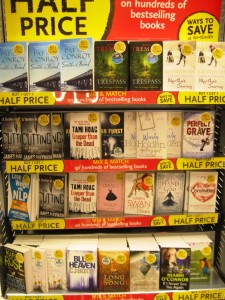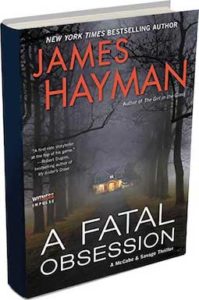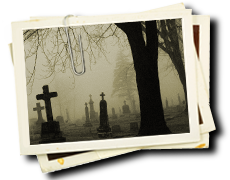Do writers, musicians and film-makers deserve to be paid for their work? I think most people would agree that they do. Does anyone have the right to create electronic versions of someone else’s work and sell it or give it away over the Internet without compensating the copyright holders? Of course not. Unfortunately Internet piracy of intellectual property is expanding exponentially and so far, at least, no one seems willing or able to do much about it.
A couple of weeks ago, on Friday January 20, leaders in both houses of Congress delayed action on two anti-piracy bills that, if passed, would have provided some measure of protection not only to major media companies including commercial publishers but also to individual writers, artists, filmakers and musicians against the wholesale theft of their work on the Internet.
The bills, the Stop Online Piracy Act, or SOPA, in the House and the Protect Intellectual Property Act, or PIPA, in the Senate were designed to provide greater powers to law enforcement agencies in the US to crack down on foreign websites that were suspected of wholesale piracy of music, movies and electronic versions of books. Some of the pirates even scan paper versions of popular books that aren’t available as ebooks , convert them to electronic files, and sell them or give them away for free. Naturally neither the creators nor licensed distributors of these works (the publishers) make a dime on these transactions.
Unfortunately, the proposed legislation created a firestorm of protest, most of it directed at congressional supporters of the bills. Big name Internet companies including Google, Wikipedia and Twitter as well as civil liberties groups lobbied against them claiming that the powers granted by the bills were too broadly defined and could effectively inhibit freedom of speech.
According to an article published in the NY Times on January 20, the problem apparently stems from the fact that some of the larger websites that legitimately sell copyrighted content also sell unauthorized content. “Megaupload and similar sites, like RapidShare and MediaFire, are often promoted as convenient ways to transfer large files legitimately; a recent promotional video had major stars like Will.i.am of the Black Eyed Peas singing Megaupload’s praises. But media companies say the legitimate uses are a veil concealing extensive theft.”
One of the commenters to the Times articles, a man named Peter Sykes, put the issue well. Mr Sykes said “…the copyright owner is the one who gets to decide if they want to give their product away, not some third party – who BTW is profiting from someone else’s creation. That’s greed.
If Ben & Jerry’s want to give away a free scoop of ice cream every Tuesday as a promotion that’s their choice. If you just decide to walk into the shop and grab a scoop without paying for it that’s called theft. It’s really very simple. I’m sure if (someone) had spent his time, energy and resources creating a song, a book, a movie etc. he wouldn’t be as keen on the idea of other people making that work available for free without his consent. Consumers wanting free product, that’s greed. Making copy written creations available for downloading without authorization is theft.”
Perhaps Google and the others have a point and the SOPA and PIPA legislation went too far. I don’t know. But I do think Congress absolutely has to come up with legislation that effectively prohibits the unauthorized online distribution of copyrighted material. And I urge anyone who agrees with this to start tweeting about it.



